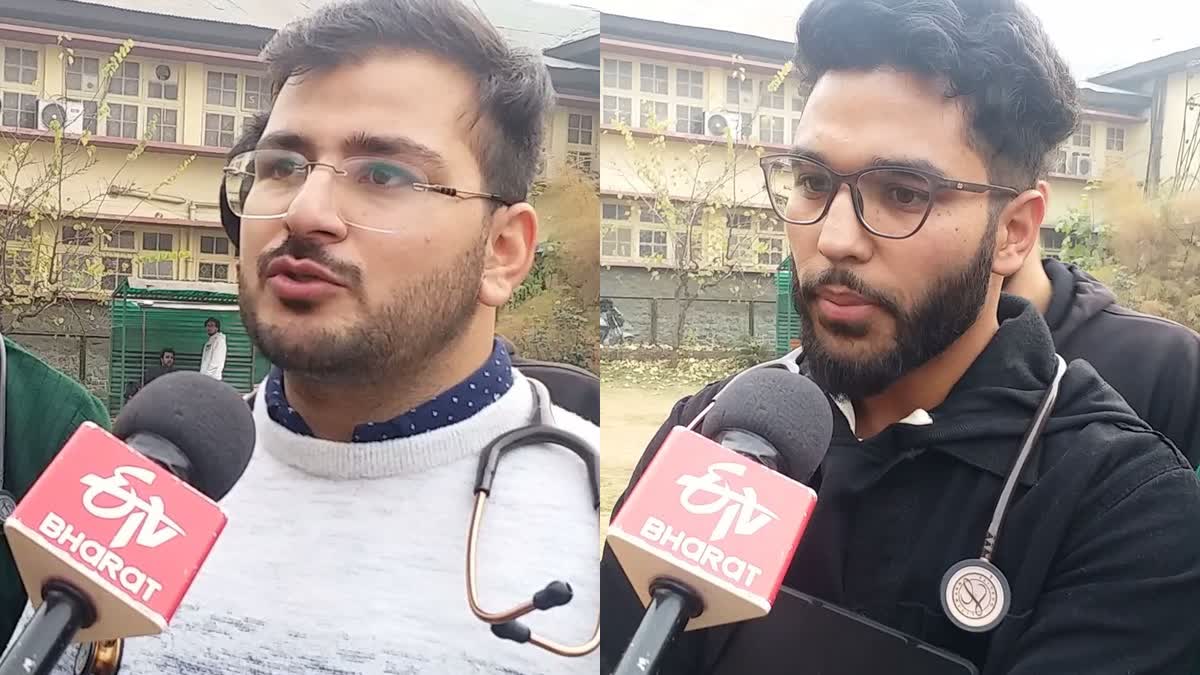Srinagar: Saqib Jan is completing his MBBS degree this academic year from Government Medical College Srinagar in Jammu and Kashmir, but he is more worried about his fate in the upcoming NEET-PG entrance that is his gateway for MS and MD courses.
The trigger for Jan and his hundreds of colleagues stems from results of NEET PG this year in which the MS and MD seats for General Category candidates were slashed to a mere 78 out of 293 total seats under reservation rules. And candidates with top ranks got dropped while reserved category candidates got seats in premier institutions in the UT.
Jan says the future of hundreds of MBBS doctors of General Category in Jammu and Kashmir is marred by uncertainty created by the new reservation rules that were implemented after the abrogation of Article 370 in the union territory. With his colleagues, the 24-year-old has been insistently demanding that the government amend the reservation rules, Statutory Orders and implement bond system for All India Quota students.
Jan says all these rules block the future of general category MBBS doctors into studying MS and MD courses as they cut the number of seats for General Category seats.
The new rules were implemented in Jammu and Kashmir in 2020 after the BJP-led government at the centre amended the Reservation Rules of 2005 which existed in the erstwhile state of Jammu and Kashmir.
“During MBBS, all students study in the same colleges availing same facilities of books, faculty, library etc, making them competent enough for practice and NEET PG. Speciality Courses (MS and MD) already less in number shouldn't require reservation as any MBBS student from reserved and unreserved used the same facilities and resources in a medical college," Jan told ETV Bharat.
Citing an example to probe the impact of the reservation on General category candidates, he said a category student with Rank 91,000 got an MD seat in SKIMS but another student of General category with Rank 739 could not get it and had to opt for other seat of not his choice.
Every year more than 1100 students complete their MBBS courses from the government medical colleges in Jammu and Kashmir. The MBBS seats saw a massive jump in Jammu and Kashmir after the UPA government opened up new medical colleges across India. Jammu and Kashmir too got eight colleges.
The total number of post-graduate seats in medical colleges in Jammu and Kashmir is 582 but of them 50 percent, which is around 291, have been put in All India Quota (AIQ) basket. The AIQ quota was again implemented in 2021, after the abrogation of Article 370 in August 2019. The PG courses are offered in the two medical colleges of Srinagar and Jammu and the Sher-i- Kashmir Institute of Medical Sciences (SKIMS).
Jammu and Kashmir medical colleges now have a total of 293 Post Graduate seats (MD and MS) for the domicile students. Of these, the number of seats allotted this year for the open merit as per the reservation rules is 113, as per the Board of Professional Entrance Examinations (BOPEE). And of the 113 seats, the horizontal reservation for different categories reduced these 113 seats to 87. The horizontal reservation was carried out by the Lieutenant Governor administration in 2022 by issuing a Statutory Order 176.
